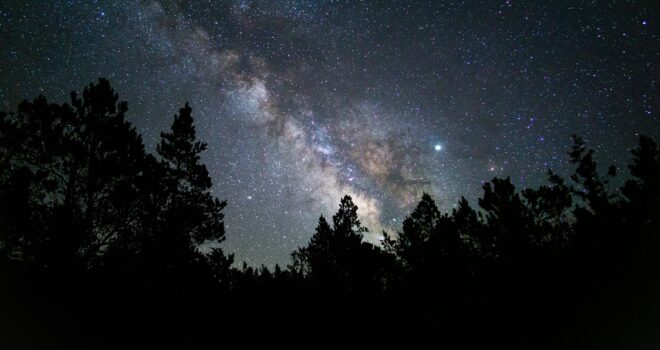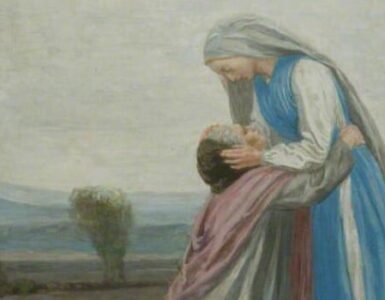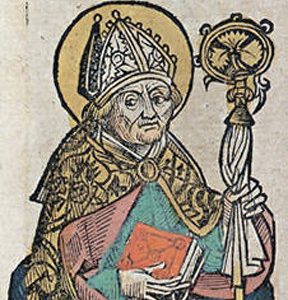I restarted Brideshead Revisited recently (a book I re-read every five to ten years), and something new jumped out at me. I was drawn to a seemingly insignificant detail: how Waugh describes a house and the bygone era in which it was built.
Upon returning to the manor the protagonist haunted in his past life, the main character—a former artist—takes notice of the entirely manmade grounds. He notes that they had been built one-hundred-and-fifty years prior for the purpose of growing into the present state that he now viewed.
All this has been planned and planted a century and a half ago so that, at about this date, it might be seen in its maturity.
Nowadays, not much of anything is built with a century and a half of existence in mind—let alone designed and carefully maintained in a state of continual maturation for that amount of time.
Upon some thought, though, I came up with one such example: a Benedictine monastery that I once visited. On the walking tour of this monastery, the abbot graciously joined us and pointed out the projects he was planning for . . . but for these he spoke in terms of centuries.
In twenty-five to fifty years, he hoped to increase and improve their accommodations so more monks could join. In one hundred years, they planned to build out their chapel. In two hundred to five hundred years, they hoped to become energy and materially self-sufficient so as to build and maintain their grounds and community by using only the resources God gave them.
This was the dream, and the nearest thing I had ever experienced in material reality to eternity. That is, until I started a family of my own.
My wife and I have discovered how parenthood includes creating experiences and traditions for our kids, based on those from our own childhoods. In this way, the flame of knowledge, wisdom, and love is carried on for centuries. As long as our children pass the torch to their children, the flame of familial knowledge will light the way through the dark passages of time.
We currently have two children and are praying for a third. As a fun thought experiment, I asked Google the size of our family line if my two children each had two children of their own, who each had two children, etc. for five hundred years. This was the response:
“If you have two children, and each of those children has two children, and this pattern continues for 500 years, the number of people in 500 years would be extremely large and essentially impossible to calculate precisely due to the exponential growth involved, but it would be significantly more than the current population of the Earth.” Wow.
The ancient Greeks had a notion called kleos aphthiton, which translates to “imperishable fame,” or “eternal glory.” It meant that great deeds had a way of being remembered forever, thus earning the hero a place of immortality. Death, in ancient Greek culture, was grim, and the afterlife was a place of eternal unrecognition. Great deeds, such as acts of courage in war or strength in Olympic games, could earn a place of immortal glory, a way out of the slavery of circadian afterlife and into the pantheon of the gods.
Another source for immortality (one they may have overlooked) was familial. In the natural course of human affairs, how better can one be remembered forever than by having generations of children to hold your family name, traditions, stories, and faith? Dynastic succession is no trifling thing—as exhibited by the Abrahamic covenant.
Certain geneticists believe Genghis Khan’s genes can still be traced among 8% of males in 16 different populations, seven-hundred-and-fifty years after his death. This statistic shows that we descendants can create nations and shape the future.
More narrowly speaking though, an action performed by a single person has the power to create numerous effects to others—consider the theoretical “butterfly effect” from Chaos Theory. How many of us think of the ripples we ourselves make within our genetic pool? How often do we think about how our behaviors shape our families, which go on to shape their families and the ones after them?
We grow and change, we co-create, age, and die. That is the great cycle of life. Within that cycle, though, is the meaning of everything. What we do, what we make, who we love and how—our daily decisions turn the course of the lives of the people we live among and the history we’re a part of.
There’s a story in saint folklore of a vision of the Curé d’Ars. In it, the evil one told him that if there were ten saints living and roaming the earth such as he, then entire world would be converted. Yet the saint was, by every earthly account, a mere local priest.
We know very little about what our decisions and actions mean, or exactly how they affect others, and, in a way, we should thank God for this ignorance, for their weight would be too great to bear. That being said, it’s good to reflect on the power of each day, of our decisions, and how our actions impact the lives of others and perhaps the course of human history.
Christ Himself was born in a stable, while the proud and mighty of that time and place—now unknown—couldn’t be bothered to move from their important rooms at the inn. The Holy Family was left unrecognized for thirty years in a Podunk town in a Podunk region of the greatest empire the world had seen. Yet even the empire itself has since passed into oblivion, or at least its gods have, while the Holy Family is forever remembered as the most important family to have ever lived.
While we will never be as holy as the Holy Family or as conquering as Genghis Khan, the ripples caused by our decisions and those throughout our families have the power to do great things by the grace of God. And by God’s grace, one day we will see the imprint we made on the greater course of His plan.
Here is our meaning. Let us live intentionally in and teach and love our families—and thereby the whole world—well.
Photo by Braden Tavelli on Unsplash














